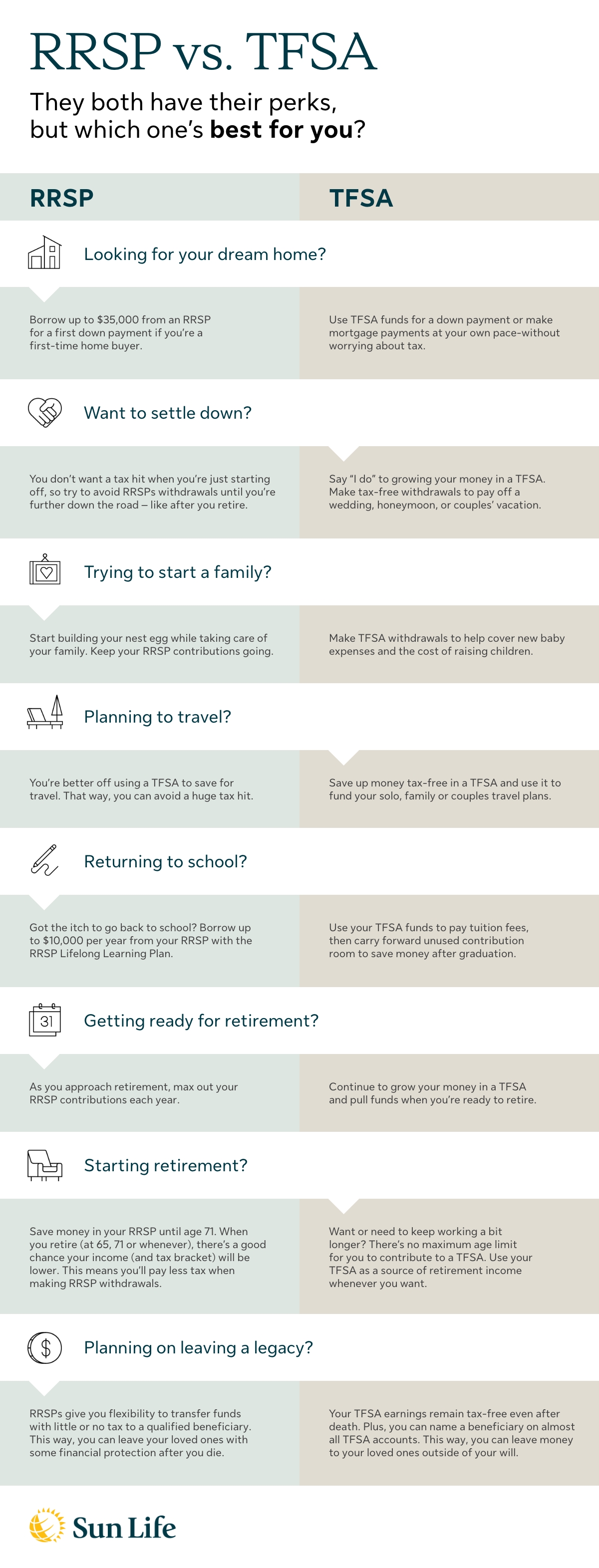RRSP vs. TFSA
They both have their perks, but which one’s best for you?
RRSP | TFSA
Looking for your dream home?
Borrow up to $35,000 from an RRSP for a first down payment if you’re a first-time home buyer.
Use TFSA funds for a down payment or make mortgage payments at your own pace – without worrying about tax.
Want to settle down?
You don’t want a tax hit when you’re just starting off. So try to avoid RRSPs withdrawals until you’re further down the road – like after you retire.
Say “I do” to growing your money in a TFSA. Make tax-free withdrawals to pay off a wedding, honeymoon, or couples vacation.
Trying to start a family?
Start building your nest egg while taking care of your family. Keep your RRSP contributions going.
Make TFSA withdrawals to help cover new baby expenses and the cost of raising children.
Planning to travel?
You’re better off using TFSA to save for travel. That way, you can avoid a huge tax hit.
Save up money tax-free in a TFSA and use it to fund your solo, family or couples travel plans.
Returning to school?
Got the itch to go back to school? Borrow up to $10,000 per year from your RRSP with the RRSP Lifelong Learning Plan.
Use your TFSA funds to pay tuition fees, then carry forward unused contribution room to save money after graduation.
Getting ready for retirement?
As you approach retirement, max out your RRSP contributions each year.
Continue to grow your money in a TFSA and pull funds when you’re ready to retire.
Starting retirement?
Save money in your RRSP until age 71. When you retire (at 65, 71, or whenever), there’s a good chance your income (and tax bracket) will be lower. This means you’ll pay less tax when making RRSP withdrawals.
Want or need to keep working a bit longer? There’s no maximum age limit for you to contribute to a TFSA. Use your TFSA as a source of retirement income whenever you want.
Planning on leaving a legacy?
RRSPs give you flexibility to transfer funds with little or no tax to a qualified beneficiary. This way, you can leave your loved ones with some financial protection after you die.
Your TFSA earnings remain tax-free even after death. Plus, you can name a beneficiary on almost all TFSA accounts. This way, you can leave money to your loved ones outside of your will.





